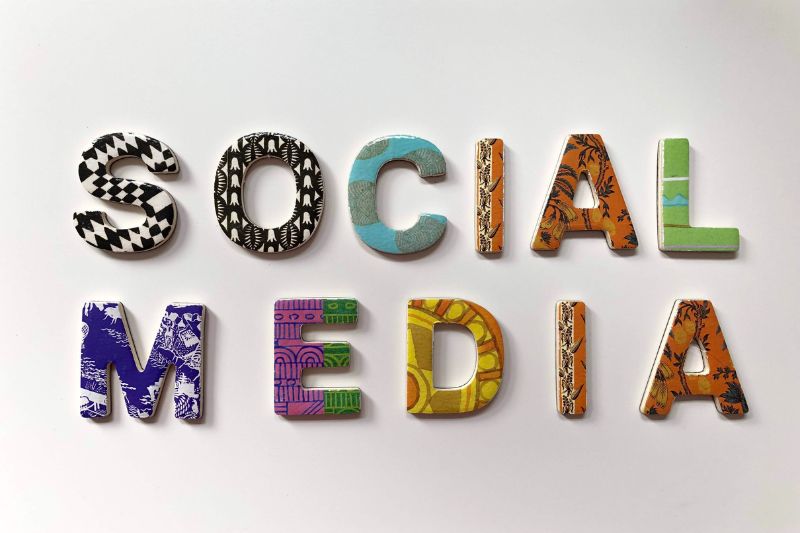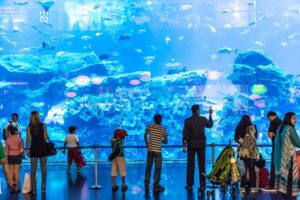Thanks to Social Media, We’re No Longer “Social”

In the digital age, the concept of being “social” has undergone a remarkable transformation, thanks to the ubiquitous presence of social media. What was once defined by lively gatherings, heartfelt conversations, and shared experiences has evolved into a complex landscape of online interactions, status updates, and virtual connections.
While social media platforms have undeniably revolutionized the way you connect, communicate, and share your lives, they are a source of a paradoxical shift. Despite the apparent increase in connections, it’s becoming increasingly evident that you’re not as “social” as you may think. This article explores the impact of social media on your social interactions. So, read on!
The Rise of Social Media
The advent of social media platforms such as Facebook, Instagram, Twitter, and more has ushered in a digital revolution, altering the way you interact and communicate. What began as a means to connect with friends and family online has evolved into a multi-faceted phenomenon, transcending geographical boundaries and influencing every aspect of your lives.
Social media platforms have given you the power to instantaneously share your thoughts, experiences, and emotions with a global audience. They’ve transformed the way you engage with information, access news, and stay connected.
The rise of social media has undoubtedly made your lives more interconnected and information-rich, allowing you to forge new connections and maintain old ones. However, this interconnectedness, while expanding your reach, has also raised pertinent questions about the quality of your interactions and the authenticity of your social connections in the digital age.
Online vs. Offline Interactions
The rise of social media has brought about a significant shift in the way you interact. Online interactions offer convenience, connecting you instantly with people from around the world. However, they often lack the depth and authenticity of face-to-face and offline interactions.
Online interactions are characterized by their often superficial and impersonal nature. Conversations happen through screens, emojis, and text, which can sometimes reduce the empathy and emotional connection that in-person interactions provide. The absence of nonverbal cues, such as body language and tone of voice, makes it challenging to fully understand and connect with others.
In contrast, offline interactions provide authenticity and emotional depth. When you meet someone in person, you experience the nuances of their personality and emotions. These real life connections foster empathy, trust, and deeper bonds. While social media has expanded your reach, it’s essential to remember that the heart of meaningful “social” interactions still resides in genuine, offline connections.
The Impact on Social Skills
The prevalence of social media has significantly influenced your social skills, sometimes in unexpected ways. As online communication becomes the norm, your digital habits can reshape the way you interact in real life. The convenience of online messaging can lead to reduced face-to-face communication, making in-person interactions feel less familiar or even intimidating.
Moreover, your ability to read non-verbal cues and engage in real-time conversations can be affected. Online interactions lack the richness of in-person communication, which includes facial expressions, body language, and tone of voice. Without these cues, you may find it challenging to interpret and respond to others effectively.
Balancing your digital and physical social lives is crucial to maintaining strong social skills. While social media offers connection and convenience, you must also invest in nurturing your in-person communication abilities to ensure that your “social” remains truly social.
The Mental Health Aspect
The pervasive influence of social media on your lives extends to your mental health. While these platforms offer opportunities for connection and self-expression, they also introduce challenges that impact your well-being. Social comparison, a common occurrence on social media, can lead to reduced self-esteem and increased feelings of inadequacy.
The constant exposure to curated, idealized versions of others’ lives can foster anxiety and loneliness. The fear of missing out (FOMO) and the pressure to measure up to online standards can take a toll on your mental health.
However, it’s essential to recognize that not all aspects of social media are detrimental to mental health. These platforms can also provide support, awareness, and a sense of community for individuals facing various challenges.
In navigating the digital landscape, balance and mindfulness in social media usage are critical for protecting and promoting your mental wellbeing in an era where “being social” extends into the digital realm.
The Quest for Authenticity
Amid the sea of curated profiles and perfectly filtered images on social media, a growing desire for authenticity has emerged. Many individuals, including you, are seeking more genuine connections and interactions, both online and offline. The quest for authenticity in the digital age is a response to the often superficial nature of online interactions.
You long for real, unfiltered moments that capture the essence of human connection. This quest extends to your social interactions, where you seek to foster meaningful relationships that go beyond the surface level.
Balancing your digital and physical lives is essential in this pursuit. You can use social media as a tool for connection and expression while also investing in building real life, authentic relationships. The quest for authenticity reminds you that, while social media has reshaped your social landscape, the core of being “social” remains grounded in genuine, meaningful connections.

The era of social media has revolutionized the way you connect, communicate, and perceive what it means to be “social.” While these platforms have undeniably expanded your reach and allowed for instant connectivity, they have also brought forth a complex paradox. In the pursuit of accumulating digital connections, you’ve sometimes found yourselves disconnected from the authenticity and depth of social interactions that were once the hallmark of being truly “social.”
The impact on your social skills, the nuances of online versus offline interactions, and the influence on mental health all underline the need for a balanced approach to the digital world. In response, the quest for authenticity has emerged, reminding you of the value of genuine, meaningful connections that transcend the digital facade.
As you navigate this evolving landscape, you must redefine what it means to be “social.” It’s not about the quantity of connections but the quality of interactions, both online and offline, that ultimately determine your true sociability and fulfillment.






